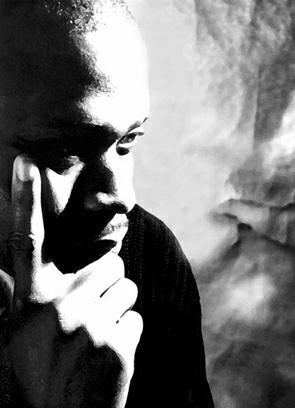The Author of BLACKAMOORES: AFRICANS IN TUDOR ENGLANDWhen I blow with a trumpet, I and all that are with me, then blow ye the trumpets also on every side of all the camp, and say, The sword of the LORD, and of Gideon.
Judges 7:17, King James Version of the Bible, 1611. This passage from the Bible illustrates why the trumpet and its sound, — neigh its power revealed in sound, was so important to people in early modern England. Blanke was a man of African descent a trumpeter who lived in England in the sixteenth century. His name Blanke may have been a misspelling that stuck of blacke. Indeed he is often referred to in official records simply as the black trumpeter. Blanke’s name could also be a joke or a pun of the French word blanc meaning white. But his profession was not a joke. He was not part of a sideshow, but the central arc that made the Westminster celebrations sacred and important. He appears twice on the Roll created in 1511 to commemorate the celebrations for the birth of the son of Katherine of Aragon and Henry VIII. Blanke may have originated from the Iberian Peninsula where people of African descent in the sixteenth century represented a significant part of that population. Black trumpeters were important and popular throughout sixteenth- century Europe. They were some of the most well-respected musicians and their trumpets were often seen as having the same role as Gideon or Joshua in the Bible. Joshua used his trumpets to knock down the walls of Jericho, his trumpets were magical: And it shall come to pass, that when they make a long [blast] with the ram's horn, [and] when ye hear the sound of the trumpet, all the people shall shout with a great shout; and the wall of the city shall fall down flat, and the people shall ascend up every man straight before him. Joshua 6:5. So the people shouted when [the priests] blew with the trumpets: and it came to pass, when the people heard the sound of the trumpet, and the people shouted with a great shout, that the wall fell down flat, so that the people went up into the city, every man straight before him, and they took the city Joshua 6:20. It is not surprising that John Blanke was an integral element in another great shout or L’hostel that began the Westminster celebrations in 1511. L’hostel was not used to knock down the walls of Jericho but to announce to the world that the King of England had a son. The King of England thought of himself as close to God. And God was accompanied by trumpets, the King needed his own trumpets and John Blanke was one of them. What else do we know about this Blanke? We know he petitioned and won a pay increase for his role as a trumpeter, on more than one occasion. His mother was also present in Tudor England and he got married probably on English soil and was issued with a purple gown and a new bonnet. The bonnet was probably similar to the turbans he is wearing in the Tournament Roll. The turban became the ethnic chic for soldiers of African descent in certain British regiments in the eighteenth century. John Blanke was the Courtney Pine of his time. But so much more, it is not remarkable to have someone now such as him, as the greatest trumpeter in the country or even the world. And it may not have been in sixteenth-century Europe if the images don’t lie. But many historians still cry foul! As they reject a plain reading of the image for a historiography situated in modernity. This is more to do with our engrafted modern racial notions than with England’s past. However be careful of superstardom. By making John Blanke an exception we marginalise and make strange his existence. Exceptionalism can help us keep our prejudices. We can marginalise the anomaly. We can say oh John Blanke he was only one man. One man does not maketh an African presence. Why this is political correctness gone mad! But such suppositions are wrong on all accounts. True he is one of the few Africans in the sixteenth-century for whom we have an image that complements written records. But that does not mean Blanke is the only person of African descent in Tudor England. In fact there are other African people in Tudor society who we know far more about. Some of these people may have had a greater impact on that society than Blanke did. But as we are now asked to gild the Lilly we can say Blanke remains the most recognisable of a rarely depicted population. Blanke is important and we are celebrating him here. But only when he becomes less important will we actually begin to understand him, England’s history, and the African in it more clearly. John Blanke (or his notoriety?) means there is much more work for us to do. Onyeka 29 May 2016 |
| The John Blanke Project | onyeka |
